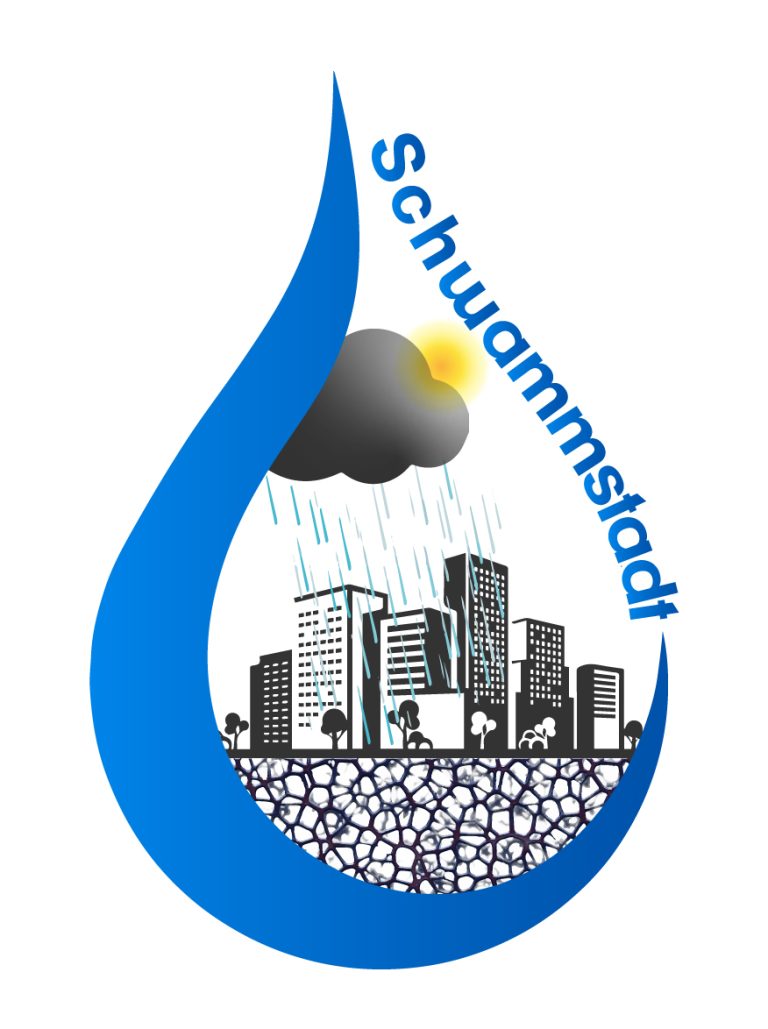

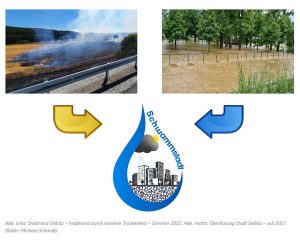
We are increasingly faced with strong fluctuations in precipitation and temperatures. This is reflected in urban flash floods and increased and longer periods of drought. Heat islands are increasingly developing in cities and flooding is becoming more frequent, partly because the sewerage systems are not designed for these changing situations. The challenge for the future is to deal with these extremes in a sensible way, in which the concept of the sponge city is seen as a decisive factor. In order to optimally utilise the effects of sponge city solutions, it is necessary to have a comprehensive knowledge of the urban water cycle system in addition to knowledge of the technical measures. Surveys and studies show that many potential users find it difficult to transfer knowledge into practice because, among other things, there is a lack of applicable methods for effective implementation and integration into everyday working life. In addition, more companies are needed that offer solutions and assistance to cities and municipalities as consultants or producers.
And this is precisely where the certificate course "The path to the sponge city - urban development in times of climate change", which is subsidised by the Bavarian state government and developed for Bavarian companies, comes in. Knowledge content and methods relating to the path to a service/product idea and its subsequent implementation by the user play a key role in the course. In addition to theoretical content, participants learn in practical exercises how to identify market opportunities using their own product/service portfolio and what they should bear in mind on the way to an offer in the context of sponge city topics.
Including the Bavarian guideline "Water-sensitive settlement development"[1] The programme provides targeted training for consulting and manufacturing companies in order to convey a systemic understanding of the water balance and urban development, so that municipalities and cities are effectively and sustainably supported in the development of sponge city concepts. The aim is to address the complexity of the sponge city in a comprehensible and realisable way. The concepts that are usually developed for large cities are also considered for transfer to medium-sized and small towns. The special Bavarian municipal structure is thus taken into account. In addition, companies are enabled to examine their own product and solution portfolio to see whether it is or can/should be part of sustainable sponge city concepts.
The main objective of the course is to enable you to identify your own performance/service fields from the sponge city topic area and to create an initial roadmap using a real example.
[1] https://www.bayika.de/de/aktuelles/meldungen/2021-01-27_Neuer-Leitfaden-Wassersensible-Siedlungsentwicklung.php
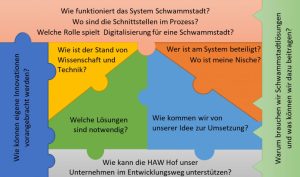
The course is aimed at employees of companies and consulting organisations from Bavaria (primarily SMEs) who are interested in entrepreneurial involvement in the field of the sponge city (e.g. with their own products, solutions, services). Employees of municipal companies as limited liability companies are also eligible to participate. In addition, representatives of municipalities, authorities and associations can participate as guests of a company. Ideally, the municipal customer will bring along their problem/sponge city project as an example, so that the practical work becomes far more application-orientated and thus the chances of implementing the projects increase considerably. The course is designed for experts in the fields of urban water management, urban planning, architecture, landscape planning, etc. as well as neighbouring specialist departments.
The certificate course begins in November 2022 and will be repeated four times in 2023. Each cycle includes a complete course.
Choose the right flow for you!

The course is free of charge for employees of companies from Bavaria. Places are limited, a minimum contingent is reserved for SMEs. Interested representatives of municipalities, authorities and associations have the opportunity to participate free of charge as guests of a company or consulting organisation. Invitations are sent via the company or consulting organisation. Municipal organisations in the form of a GmbH may participate directly in this course. Please contact us if you have any questions.
By e-mail: schwammstadt@hof-university.de
Please state the desired date in your e-mail and give us at least one alternative date.
The course comprises 45 teaching units of 45 minutes each and concludes with an examination consisting of a transfer task. Participation in at least 80% of the course is required to obtain the university certificate.
The "Water infrastructure and digitalisation" research group
The certificate programme "The road to the sponge city - urban development in times of climate change" is used by Prof Günter Müller-Czygan and its "Water infrastructure and digitalisation" research group developed. The team is made up of experienced employees with expertise in water/wastewater management, engineering, digitalisation, hydrology, electrical engineering, industrial engineering and consulting/coaching. The research group focuses on processes and methods for more effective water protection by means of dynamic sewer network management, soil as a water reservoir and technologies/methods for the sponge city. The focus here is on increasing efficiency with the help of digitalisation as well as developing methods for effective implementation transfer. The digitalisation of operational knowledge for process control and knowledge retention plays an important role here.
As part of the "The Road to the Sponge City" programme for companies and planners, Hof University of Applied Sciences would like to offer you the opportunity to actively tackle the challenges of the future in the area of extreme weather.
Participants go through the following 4 core modules, in which both knowledge and basic skills are taught:
The combination of the different expertise of our speakers and coaches enables you to take a holistic view of the processes in the Schwammstadt system at the end of the programme and to position yourself with your products/services/projects. Above all, you will learn about valuable tools for implementation and practise these using your own examples.
Contents
Module 1 provides an overview of the mechanisms of the natural and technical water cycle in urban areas. The interaction between the two water cycles is discussed. You will gain a general insight into the development of the two weather extremes of heavy rainfall and drought and learn about the formation of weather extremes using time series and graphical representations.
1.1 Water cycle in urban areas
1.2 Weather extremes
1.3 Analysing and assessing weather extremes
Goals
After Module 1, you will understand the relationships between the betting extremes and the two water cycles. In addition, you will have an extended understanding of rainfall series, KOSTRA data, localised rainfall data and will be able to assess flash flood and drought maps. You will be able to transfer the effects to urban issues using various examples.
Methodical realisation
Lecturers and lecturers
Contents
Participants will receive an overview of the state of the art and science on technical measures for dealing with extreme weather events such as heavy rainfall and dry spells. In addition, known and proven organisational measures will be discussed. Another sub-module deals with the state of digitalisation in German-speaking water management with reference to sponge city-relevant topics, based on the results of the meta-studies WaterExe4.0 and DigiNaX. Sustainability aspects in connection with sponge city concepts will also be considered.
2.1 Technical measures for heavy rain and dry periods
2.2 Organisational measures Heavy rain and dry periods
2.3 Role of digitalisation
2.4 Sustainability as part of the sponge city concept
Goals
Building on Module 1 and following the content of Module 2, you will be able to draw initial conclusions for possible technical and organisational packages of measures, data analyses and evaluations.
They understand the application possibilities and limits of digitalisation and are able to make an initial assessment of the application of digital solutions for individual sponge city tasks.
You will be able to relate basic definitions of sustainability and your own understanding of sustainability to this and formulate them for individual tasks. You will also be able to describe their significance for the urban space and in particular for sponge city aspects and evaluate them on the basis of criteria.
Methodical realisation
Lecturers and lecturers
Contents
Participants will gain an in-depth insight into the overall Schwammstadt system, building on the associated individual elements presented in sub-module 2. In addition, an overview of direct and indirect as well as short, medium and long-term cost/benefit effects and possible rebound effects of sponge city projects is provided.
3.1 From the individual idea to the sponge city concept
3.2 Economic aspects
Goals
After Module 3, you will be able to identify SOWIESO projects and define them specifically as a design tool for the implementation of sponge city projects. You will understand the systemic approach to developing individual ideas that are derived from an overall concept and, conversely, how an overall concept is developed from individual ideas.
Methodical realisation
Lecturers and lecturers
Contents
Based on the core elements and statements of sub-modules 1 and 2 as well as the learning content of sub-module 3, participants learn to comprehensively understand the sponge city market and to classify their own position and role or their own organisation. In addition, they will learn how to categorise their product and service portfolio in relation to market potential and competitors and how to define their own market objectives.
4.1 Developing products, ideas and solutions for sponge city concepts
4.2 Exercise examples
Goals
Participants are able to practically apply the knowledge and information from sub-modules 1 to 4 and formulate suitable target descriptions for their individual case, define competence profiles and create a road map for their selected Schwammstadt services. They know their potentials/competences and can describe their desired developments and their own limitations.
Methodical realisation
Lecturers and lecturers
The research here is tough.


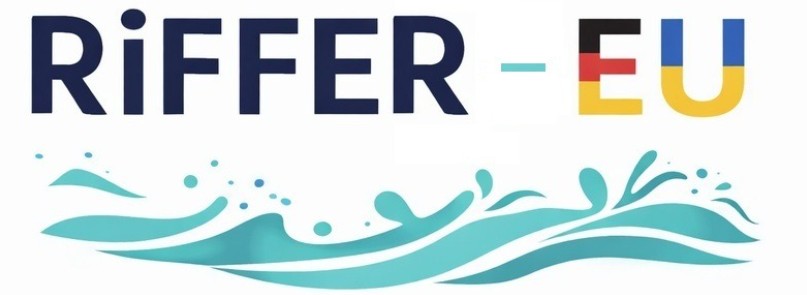

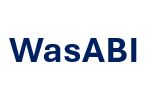
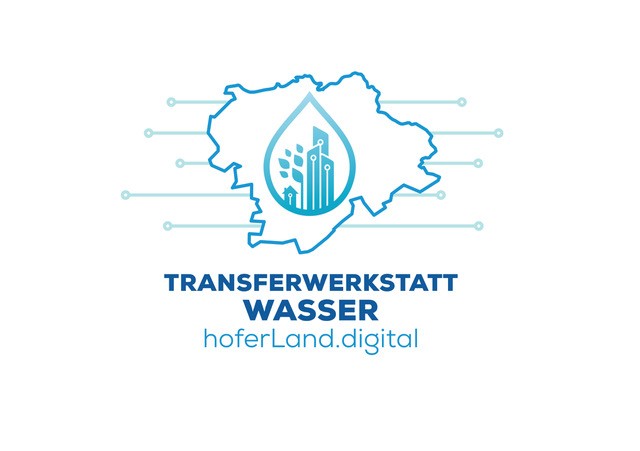




News about the inwa and its events.